[ENG] [ESP] My opinion about venezuelan authors| Mi opinión sobre autores venezolanos 📚
Para ver la versión en español, haz clic aquí
Hey there, Hive!✨
I think I've mentioned before in a post about Venezuelan musicians that I've never really delved much into things coming from my country. I don't know if there's a specific reason for that, probably there is, but it's the reality. Rarely does an artist genuinely catch my attention. I think this worried several people close to my family when, from a very young age, I expressed my lack of interest, which generated a lot of criticism. However, my paternal grandfather understood that I was not going to gain any interest in that way, so without giving me much detail, he took one of his books from his large library and gave it to me, saying, "What if you read this book that I really like? It's short, I'm sure you'll like it". How could I say no to my grandfather?
I ended up reading Miguel Otero Silva, finding out after finishing the book that the author was Venezuelan, and I must admit that I really liked it. From that day on, I promised to give more opportunities to something made in Venezuela, discovering actual gold, including another one also taken from my grandfather's library. So in this post, I'll tell you more about those two books that changed my perspective a bit.
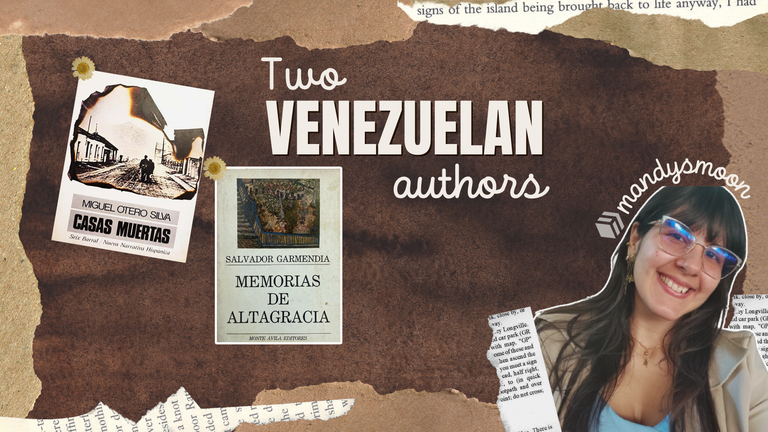

As I mentioned, I didn't know what to expect from this book, however, as I read on I found myself experiencing a range of emotions: tenderness, pain, excitement, hope, desire, injustice, resentment, frustration... So many things in so few pages that this book honestly left a very good impression on me.


Otero Silva describes a small town in the plains called Ortiz, which I don't remember if it was set in 1955, but I know the book was published that year. Back then, as a small town, far from the big cities, it was almost immune to modernization, and I say almost because it seems to find a home in every corner of the earth. In Ortiz, it arrived, of course, under the promise of great advances and improvements for the entire town and its inhabitants. Imagine being one of them, dreaming of the possibility of large companies being built in your remote home... It's a dream come true, only this one isn't as beautiful as it seems.
Where there's a will, not always there's a way, and in a town ravaged by malaria and emigration to better-off areas, finding people with enough conviction to make the effort necessary for progress is almost an impossible task. There are a few, but it's not enough. That's why dreams remain mere yearnings, ideas forgotten, and desires frustrated, turning Ortiz into a ghost town, increasingly populated by dead houses.
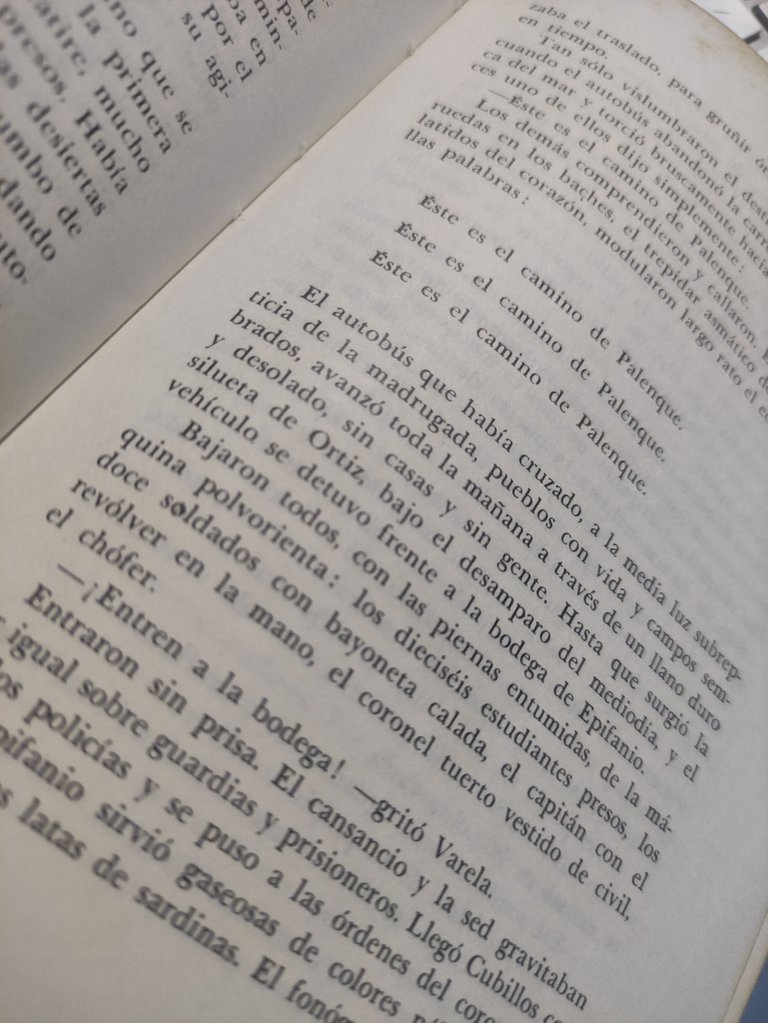
This story is a clear reflection of the precariousness of progress in Latin America, describing how modernization is unequal and therefore unfair, benefiting only a few fortunate people, while others are condemned to stagnate in the poorest conditions in every sense. Here, the author strongly criticizes the political system of the time, but he does so through a fable, immersing the reader in a bittersweet story between the protagonists, but which contains an implicit message of the political problems that plagued the population.
I think it's this ability to convey the main message in a subtle way that I liked most about this book. It distracts you to a certain extent by focusing on another part of the story, but once you begin to analyze everything, you realize what the book really intended to convey. It is a stark representation of the social inequality that condemns many to misery, also showing the emotions that deeply mark those who must face these conditions. The feelings are raw, and that's exactly what hooks you into this short but concise story.

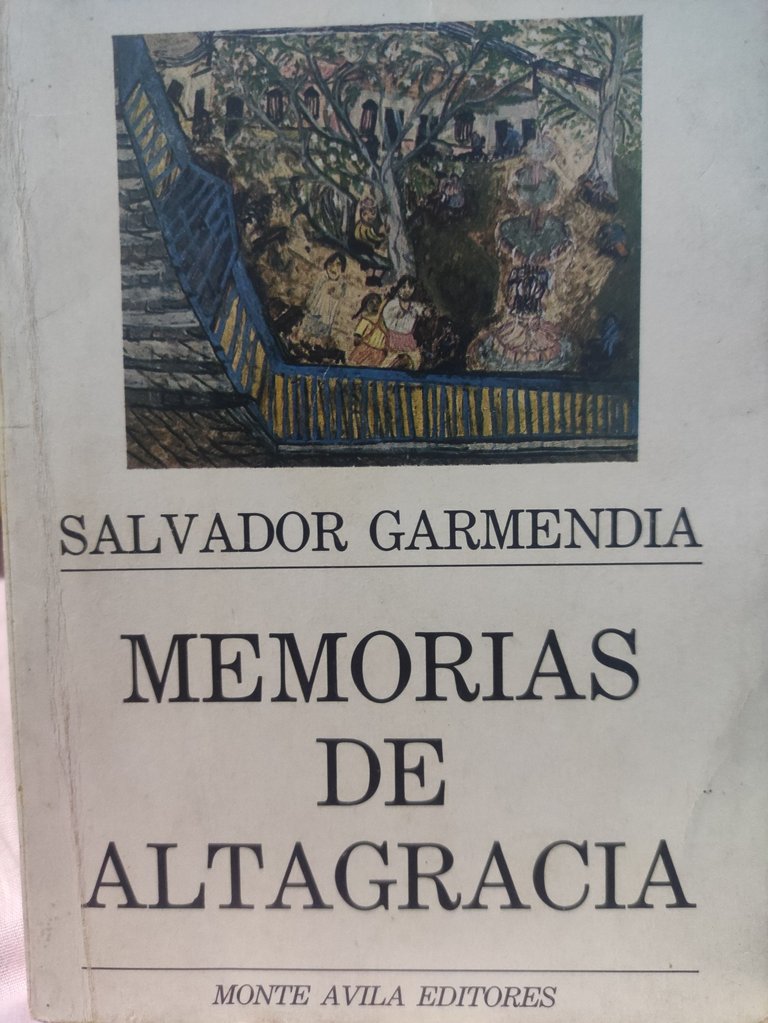
I can say now that this is the book I liked the most. Perhaps because I like retrospective, and this one has something that makes it even better: the magical realism typical of Latin American novels. Here we find a child, later a teenager, narrating his life in a small town, which, unlike the one in the previous story, is on the rise.
His childhood is filled with changes, exciting situations, and the social imagery of the country it focuses on, Venezuela—more specifically, what's common in small towns. Being Venezuelan, reading so many typical phrases and everyday situations I've heard about or experienced myself, I found myself then laughing more than once while reading, feeling identified or represented, however you want to see it.
For this reason, I find Garmendia's writing rich and colorful, as it takes a look back where she transforms memory into reality, painted with magic and nostalgia, reinterpreting reality from a different perspective.
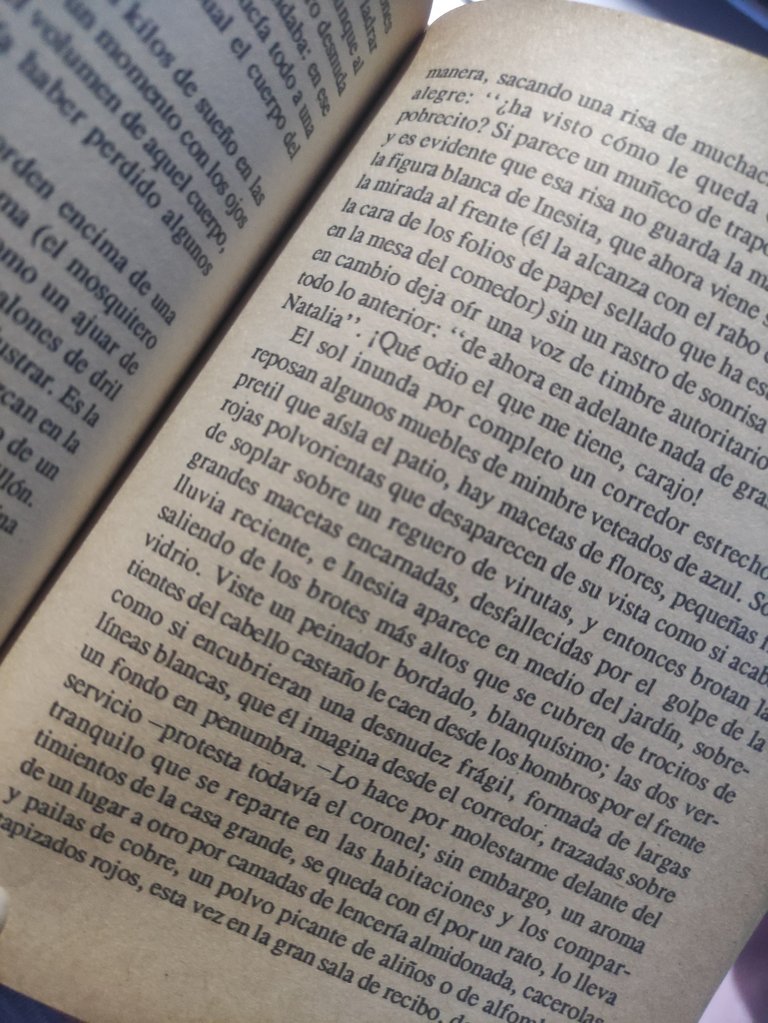
In addition to representing the collective imagination in the form of a story, I believe it also manages to portray that feeling (nostalgia) we have when remembering very distant times. For example, when I was just 5 years old, I might not have thought about anything other than the emotion of the moment, which I would soon forget in order to focus in a new experience. But now, at 27, returning to that memory is different, even forming false memories that my brain, given its nature, considers true. I think that's exactly what the author manages to portray, and for me, the fact that he did it in so few pages is a great achievement.
That may be precisely what I find most striking about these authors: they managed to construct meaningful stories, full of symbolism and powerful messages, which they also condensed into a few lines. This shows that you don't always need a complex and extensive story to convey something important.
So, I would invite every reader to read this little piece of my country, which these authors genuinely manage to capture, full of magic and a unique way of telling stories.




Español
¡Hola, Hive!✨
Creo que he mencionado antes en un post sobre músicos venezolanos que realmente nunca he indagado mucho en las cosas que vienen de mi país. No sé si haya alguna razón específica, probablemente sí, pero es la realidad. Rara vez algún artista me llama la atención genuinamente. Esto creo que llegó a preocupar a varias personas cercanas a mi familia cuando desde muy joven manifestaba mi falta de interés, lo cual generaba un montón de críticas. Sin embargo, mi abuelo paterno comprendió que de mala manera no iban a generarme ningún interés, así que sin darme casi ningún detalle, tomó uno de sus libros de su gran biblioteca y me lo dió diciendo «¿y si lees este libro que me gusta mucho? Es cortito, seguro te gusta». ¿Cómo le iba a decir que no a mí abuelo?
Terminé leyendo a Miguel Otero Silva, enterándome al terminar el libro que ese autor era venezolano,y la verdad debo admitir que me gustó mucho. Desde ese día prometí darle más oportunidad a algo made in Venezuela, descubriendo joyas, incluyendo a otra sacada también de la biblioteca de mi abuelito. Así que en este post les hablaré de esos dos libros qude cambiaron un poco mi perspectiva.
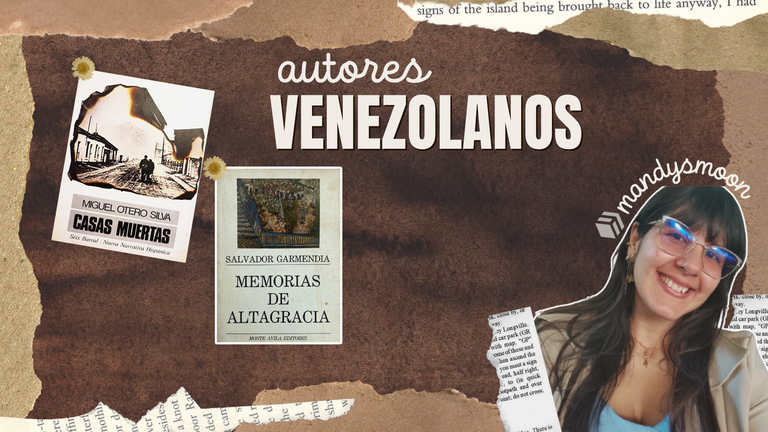

Como comenté, de este libro no sabía qué esperar, sin embargo, a medida que iba leyendo me encontré con un abanico de emociones: ternura, dolor, ilusión, esperanza, deseo, injusticia, resentimiento, frustración... Tantas cosas en tan pocas páginas que sinceramente este libro dejó una muy buena impresión en mí.


Otero Silva describe a un pequeño pueblo del llano llamado Ortiz, que no recuerdo si está ubicado en la época de 1955 pero sé que el libro sí fue publicado en dicho año. Entonces, como pueblo pequeño, alejado de las grandes ciudades, era casi ajeno a la modernización, y digo casi porque parece que esta encuentra casa pedazo de la tierra. En Ortiz llegó, por supuesto, bajo la promesa de grandes avances y mejoras para todo el pueblo y sus habitantes. Imagina ser uno de ellos, soñando con la posibilidad de que en tu remoto hogar se comiencen a construir grandes empresas... Es un sueño hecho realidad, solo que esta no es tan bonita como parece.
Querer no siempre es poder, y en una localidad azotada por el paludismo y la emigranción a zonas en mejores condiciones, encontrar a personas con la suificiente convicción en el esfuerzo necesario para el progreso es casi una tarea imposible. Hay algunos pocos, pero no es suficiente. Por ello los sueños se quedan en anhelos, las ideas olvidadas y el deseo frustrado, haciendo de Ortiz un pueblo fantasma, cada vez más poblado de casas muertas.

Esta historia es un reflejo claro de la precariedad del progreso en américa latina, describiendo cómo la modernización es desigual y por tanto, injusta, beneficiando solo a algunos afortunados, mientras otros están condenados a estancarse en las condiciones más pobres en todos los sentidos. Aquí el autor hace una fuerte crítica en contra del sistema político de la época, pero lo hace mediante la fábula, envolviendo al lector en una historia agridulce entre los protagonistas pero que contiene como mensaje implícito los problemas políticos que sometían a la población.
Creo que es esa capacidad de transmitir el mensaje principal de una forma sutil lo que más me gustó de este libro. Te distrae hasta cierto punto poniendo el foco en otra parte de la historia, pero una vez comienzas a analizar todo te das cuenta de lo que realmente se quiso contar. Es una representación cruda de la desigualdad social que condena a muchos a la miseria, mostrando también esas emociones que marcan profundamente a quienes deben enfrentar esas condiciones. Los sentimientos se sienten a flor de piel, y es justo lo que termina de engancharte a esta historia corta pero concisa.


Puedo decir ya que este de los dos, es el libro que más me gustó. Quizás porque me agradan las historias retrospectivas, y esta tiene un añadido que la hace mejor, el realismo mágico típico de las novelas latinas. Aquí encontramos a un niño, luego adolescente, que narra su vida en un pueblo, que muy por el contrario al de la historia anterior, este sí va en ascenso.
Su infancia está cargada de cambios, situaciones emocionantes y el imaginario social de el país en que se centra, Venezuela, más específicamente lo común en los pueblos. Al ser venezolana, leyendo tantas frases típicas y situaciones cotidianas de las que he escuchado hablar o que yo misma he vivido, más de una vez me encontré riéndo mientras leía, sintiéndome identificada o representada, como lo quieras ver.
Por ello, la escritura de Garmendia me parece rica y colorida, puesto que da un vistazo atrás donde convierte el recuerdo en realidad pintada de mágia y nostalgia, reinterpretando la realidad desde una óptica distinta.

Además de representar el imaginario colectivo a modo de relato, considero que también logra representar esa sensación (nostalgia) que tenemos al recordar tiempos muy lejanos. Por ejemplo, cuando tenía apenas 5 años quizás no pensaba en algo más que la emoción del momento, que pronto olvidaba para así priorizar alguna nueva experiencia. Pero ahora con 27, volver a ese recuerdo es diferente, pudiendo incluso formar falsos recuerdos que mi cerebro, por como es, considera verdaderos. Eso creo que es justo lo que el autor logra representar, y para mí que lo haya hecho en tan pocas páginas es un gran mérito.
Justamente puede ser eso lo que más destaco de estos autores, que lograron construir historias significativas, cargadas de simbolismos y mensajes poderosos, que además condensaron en pocas líneas. Eso demuestra que no siempre se necesita una historia compleja y extensa para lograr transmitir algo importante.
Así que invitaría a todo lector a leer este pedacito de mi país, que genuinamente estos autores lograr capturar cargado de magia y una forma de relatar única.



https://x.com/mandysmoon98/status/1933330701203722595
Otero Silva es un autor complejo, leí "Cuando quiero llorar no lloro", una gran novela.
Salvador Garmendia también es un excelente autor venezolano. En el país hay bastante talento en el área de la literatura.
Justamente ese libro aún no lo leo, pero habiendo leído Casas muertas, ya me imagino el excelente trabajo que también debe ser.
Garmendia me encantó totalmente, tiene una forma muy bonita de mezclar el realismo mágico en su relato. Verdaderamente en el país hay mucho talento.
Muchas gracias por leer y comentar 🖤
En la literatura venezolana hay bastante tela que cortar, tanto en historia, que son mis cosas favoritas, porque te amplían el contexto del país desde varias formas críticas y reflexivas, como las novelas, y es chévere porque además es fácil de comprender el lenguaje criollo que nos caracteriza, a diferencia de los otros libros que están a una escritura más neutro
Totalmente de acuerdo. Probablemente eso sea el gancho, que el lenguaje lejos de ser neutral, intenta representar esa realidad cotidiana y conecta más con el lector.
Muchas gracias por leer y comentar 🖤
Hello mandysmoon!
It's nice to let you know that your article won 🥉 place.
Your post is among the best articles voted 7 days ago by the @hive-lu | King Lucoin Curator by keithtaylor
You and your curator receive 0.0001 Lu (Lucoin) investment token and a 5.58% share of the reward from Daily Report 694. Additionally, you can also receive a unique LUBROWN token for taking 3rd place. All you need to do is reblog this report of the day with your winnings.
Buy Lu on the Hive-Engine exchange | World of Lu created by @szejq
STOPor to resume write a wordSTARTThank you so much @hive-lu @keithtaylor !